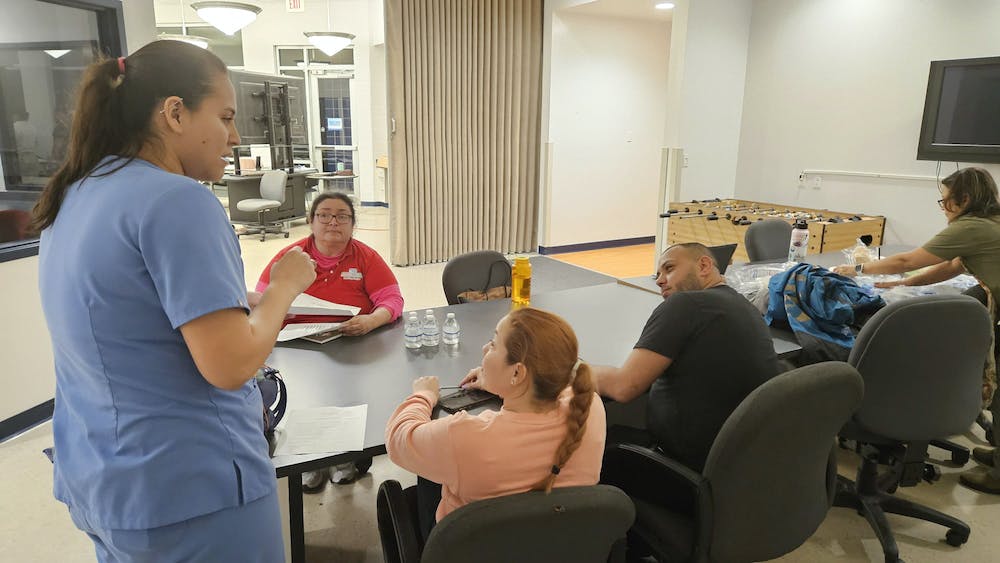Source: The Independent Florida Alligator
By Laura Quintana
Many non-English speakers arrive in the country without knowing basic things about the language, which creates problems when they can’t communicate with native English speakers.
The Latina Women’s League aims to empower the local Hispanic community through a variety of educational events and community activities.
On Jan. 25, the league began teaching English classes for immigrants at HealthStreet to provide support to those who came to the United States without knowing the language.
“I think it is helping [people] a lot, because many people don't know how to say very simple words,” said Ericka Ghersi, the 48-year-old league president. “So it is giving them the security of being able to speak because knowing some words, it already gives you a little security to continue speaking…we are like the mothers who help the child to walk, like that, then they can run.”
While the students are mostly Spanish-speaking immigrants, the classes are not exclusively for them. Ghersi said the English classes are for anyone interested.
“[The classes are] for anyone, any gender, any country,” Ghersi said. “It just so happens that the majority are Latin Americans, but it's just a coincidence, but it's for everyone.”
Coming to the U.S. from a third-world country can induce culture shock for immigrants, Ghersi said.
“Coming here without a language that you don't know is a strong shock,” Ghersi said. “And coming here in a language that you don't know and with so much technology that you have never used in your country, like for example washing clothes in a washing machine, or washing your dishes in a dishwasher.”
Ghersi, who is also an immigrant, started the classes because she knows how it feels for immigrants who can’t speak English.
“If I have those tools to explain to people the things they should avoid, why not teach them?” Ghersi said. “Because I will be so selfish to think that they must suffer like I suffered.”
Almost 50 people have signed up for English classes run by volunteers on Tuesdays and Thursdays. Some of the volunteers are students like Alejandro Ramírez, a UF psychology junior.
“I have always had a passion for teaching English to Spanish speakers,” Ramírez said. “My mom is one of those people. Since I was little I have been her interpreter, as she has not spoken English since she arrived in this country 20, 30 years ago. She now speaks a little English, but she kind of inspires me to teach other people.”
To read more, click here.

